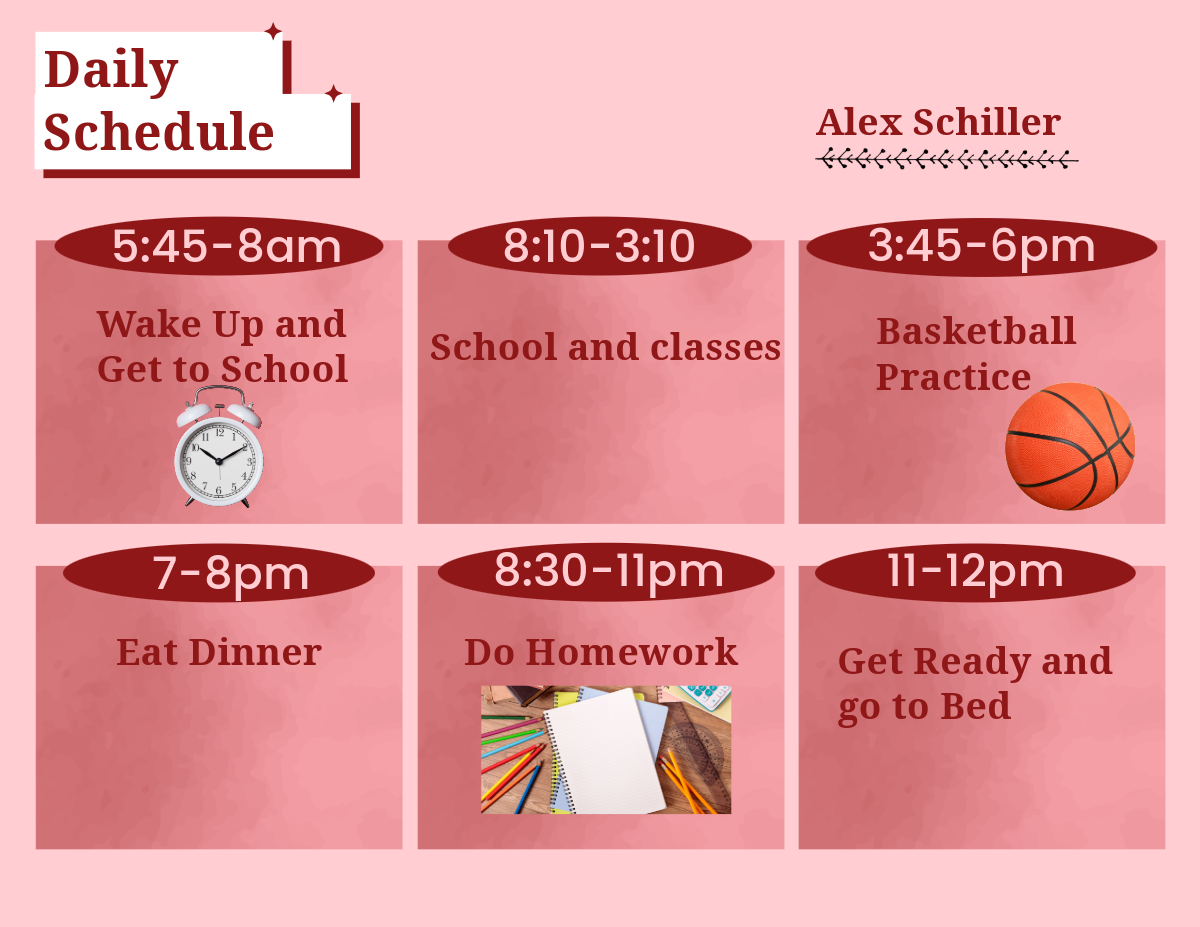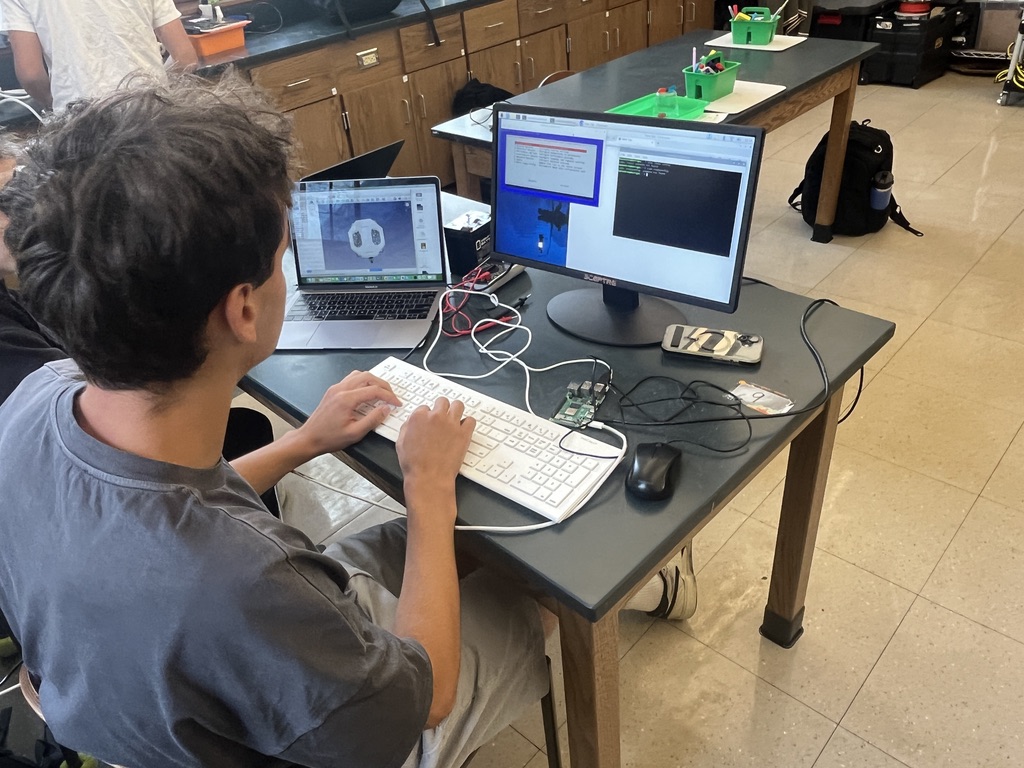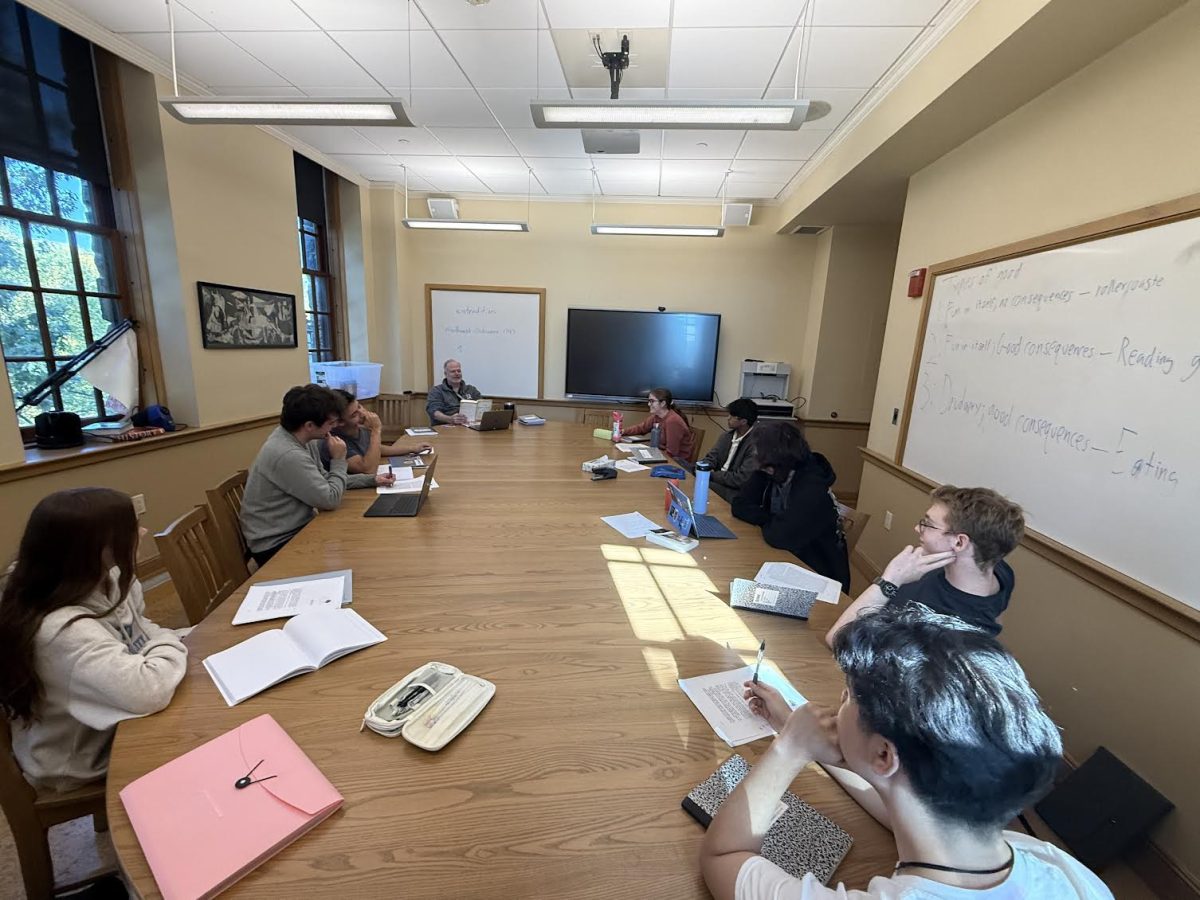Senior Alex Schiller’s alarm starts ringing at 5:45 a.m. She rubs her eyes and slowly attempts to get out of bed, brush her teeth, and do all of her daily morning rituals. She drives one hour to school and arrives at 7:45 a.m. She drinks some coffee and goes to her first class. For the rest of the day, she attends difficult classes, working hard to force her brain to work and absorb information for seven hours despite her fatigue. When her last class ends at 3:10 p.m., she heads over to the gym to get ready for basketball practice.
In some ways, her day is only half over. As quickly as she can she gets ready and runs to the court to practice. She practices for two hours until 5:30 p.m., and she goes to the gym to lift weights until 6:00 p.m. After her long busy day of school and exercise, she gets in her car and drives home. She arrives at home at 7:00 p.m. and sits down at the dining room table to eat dinner. After dinner, she starts her homework. At 11:00 p.m., after four hours of homework, she gets ready for bed. When her head finally hits the pillow, she looks at the time and it is midnight.
The next day she will do it all over again: this is Alex’s daily schedule. “On average, I get six hours of sleep,” said Alex. Experts argue it’s not enough.
“Teenagers aged 13–18 years should sleep 8–10 hours per 24 hours,” according to the American Academy of Sleep Medicine. However, according to the Better Health Channel, “Most teenagers average six and a half hours of sleep per night.”
Many high school students spend a lot of time outside of school doing homework. Schoolwork takes up a lot of a student’s day and is usually the reason that they aren’t able to get the required amount of sleep.
“I spend on average four hours of my night doing homework,” said sophomore Leila Dillow.
Leila’s homework load is not unusual. According to U.S. News “High school students get assigned up to 17.5 hours of homework per week.”
Students’ brains are constantly being forced to do work. They have barely any time to do something relaxing, as the constant pattern of school, sports, and homework drains them. No matter how much sleep students get on the weekends, it is never enough to catch up for the loss of sleep they get during the school week. They are in a constant state of tiredness. This fatigue affects the way they can obtain information and the way they can go about their day.
Students don’t have time during their day to themselves. They have such a strict and filled schedule, leaving no time to incorporate activities that relax them. If they do take any time to themselves to do an activity such as watching a movie or playing a game on their phones, that will take away from their sleep, which they already don’t get enough of.
“My schedule is pretty much school, exercise, homework, and sleep,” said freshman Cooper Ho.
A constant and repetitive schedule eventually gets tiring. School itself is draining students.













